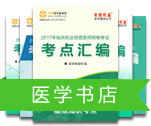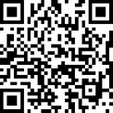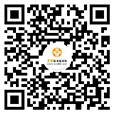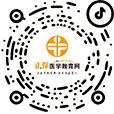“医学英语:it的用法”相信是学习医学英语的朋友的朋友关注的事情,为此,医学教育网小编整理以下内容,希望可以帮助您!
一、it强调句型
在表示强调的结构中,it可用作先行代词,这种结构的句型如下:It+is/was+被强调的部分+that+其他部分。如果强调的部分是人,可用who,whom代替that.
例如:
Professor Wang teaches us English every Monday afternoon.
王教授每星期一下午教我们英语。
强调主语:It is Professor Wang who teaches us English every Monday afternoon.
强调间接宾语:It is us whom Prof.Wang teaches English every Monday afternoon.
强调直接宾语:It is English that Prof.Wang teaches us every Monday afternoon.
强调状语:It is every Monday afternoon that Prof.Wang teaches us English.
1)该上课了,快。
It is time for class.Hurry up.
2)从这儿到你们学校远吗?不远,大约一公里。
Is it far from here to your school?No,it isn‘t.It’s about a kilometer.
3)从我家到颐和园去很近。
It is very near from my home to the Summer Palace.
4)(天)正在下雨。
It‘s raining now.
5)电灯是爱迪生发明的。
It was Edison who invented the electric light.
6)我认为学习一门外语是很重要的。
I think it important to learn a foreign language.
7)他通常一天读两次英语。
He made it a rule to read English twice a day.
8)从我家去天安门广场坐公共汽车大约要一个小时。
It takes about an hour to go from my home to the Tian‘anmen Square by bus.

反意疑问句
反意疑问句相当于“对不对?”“好不好?”“行不行?”,用yes或no回答。由两部分组成,前一部分是陈述句,后一部分是附加疑问短语,中间用逗号隔开,所以反意疑问句又叫附加疑问句。通常的形式是:肯定的陈述句+否定的附加疑问,或否定的陈述句+肯定的附加疑问。
如:
He studies English,doesn‘t he?
He doesn‘t study English,does he?
They are from America,aren‘t they?
They are not from America,are they?
反意疑问句的主要形式:
1.如果主句是be或其他助动词(如can,shall,will等),其反意疑问句用同一助动词。
如:
We are late,aren‘t we?
You haven‘t met my wife,have you?
He can drive a car,can‘t he?
They used to have difficulty in just making ends meet,didn‘t(usedn’t)they?
You‘d better eat with knives and forks,hadn’t you?
2.如果主语带有seldom,hardly,never,rarely,few,little等否定词或半否定词时,因为主句本身具有否定意义,附加疑问部分的动词用肯定式,
如:
We seldom go to the cinema,do we?
Sue almost never worked,did she?
3.如果主句部分是“I am…”结构,由于“am not”没有相应的缩略形式,附加疑问部分一般用aren‘t I代替。
如:
I am your friend,aren‘t I?
I‘m late,aren’t I?
I am a student,aren‘t I?
在祈使句中的附加疑问部分一般用will you,won‘t you.
4.在祈使句中的附加疑问部分一般用will you,won‘t you.
如:
Sit down,will you?
Have some tea,won‘t you?
Open the window,won‘t you?
这种句子可以理解为:Will you do something?
如:Will you open the window?
注意:否定的祈使句之后,只能用will.
如:
Don‘t forget,will you?
Don‘t make so much noise,will you?

5.以Let‘s…开头的祈使句,肯定的用shall we?否定的用all right?或OK?,如:
Let‘s go back to our seats,shall we?
Let‘s not have hot food this time,OK?(all right?)
这种句子可以理解为:Shall we(do something?),
如:Shall we go back to our seats.这样有助于理解和记忆。
注意:Let‘s与Let us的区别:Let’s包括听话人在内,应用shall we,而Let us不包括听话人在内,表示“请你让我们…”,要用will you.
如:
Let‘s watch the news on TV,shall we?(表示建议)
Let us watch the news on TV,will you?(表示请求)
6.主句是I suppose,I think,I believe等时,附加疑问部分则往往与that从句中的主语和谓语动词保持对应关系,但要注意否定的转移。
如:
I suppose that you know the meaning of the word,don‘t you?
(这句话明显是要问“你是不是知道?”而不是问“我是不是这样认为?”)
I don‘t think that you have read the book,have you?
7.当主句的动词have表示“拥有”时,附加疑问既可用have,也可用do,
如:
You have a color TV set,haven‘t you/don’t you?
当主句的have不表示“拥有”而表示其他意思时,附加疑问要用do,
如:
You had a cold yesterday,didn‘t you?
They don‘t have coffee with breakfast,do they?
8.There be句型的反意疑问句,用there作主语。
如:
There is something wrong,isn‘t there?
There won‘t be any trouble,will there?不会有任何麻烦,是吗?
9.陈述部分的主语是everyone,someone,anyone,no one,nobody等不定代词时,其疑问部分的主语可用he,也可用they.
如:
Everyone knows it,doesn‘t he/don’t they?
英语反意疑问句的回答有点和汉语的相反。但一定要记住:只要回答是肯定的,都用yes,只要回答是否定的,都用no.这在主句是否定句的时候要特别注意。例如:
Mr.Jones can‘t speak French,can he??No,he can’t.
琼斯先生不会讲法语,对吗??对,他不会讲法语。
Mr.Jones can‘t speak French,can he??Yes,he can.
琼斯先生不会讲法语,对吗??不,他会讲法语。
This is not a door,is it?-Yes,it is.It is an iron door.
这不是门,对吗??不,这是门。是扇铁门。

二、形式宾语it
it作形式宾语,代表其后所说的真正的宾语。真正的宾语是以that引导的名词性从句或不定式短语。例如:
I consider it wrong that you Chinese students learn English without comparing it with your own language.
我认为你们中国学生学习英语,不和你们自己的语言比较是不对的。
I find it not so difficult to learn a foreign language.
我发现学习一门外语不那么困难。
I remember I made it clear to you that I was not coming.
我记得向你明确表示过我不来。
They want to make it clear to the public that they are doing an important and necessary job.
他们要向公众表明,他们在做一件重要而又必要的工作。
三、形式主语it
动词不定式、动名词短语起、从句在句子中起主语作用,而这一部分用词较多时,可以用it作为形式主语,放在句首代表其后所说的事实上的、真正的主语,而把真正的主语放在后面。
1.It+谓语+动词不定式。It作形式主语,动词不定式作真正的主语。
例如:
It is difficult to climb a mountain.爬山是很艰难的。
It‘s a good habit to do morning exercises.作早操是个好习惯。
It‘s important to do proper memory work in the study of a foreign language.在学习外语时适当地做一些有助于记忆的练习是很重要的。
It is right to do so.这样做是对的。
2.It+谓语+动名词短语。It作形式主语,动名词短语作真正的主语。
例如:
It is dangerous playing with fire.玩火是危险的。
It is no use learning without thinking.学而不思则罔。
It‘s useless arguing with a silly boy.和笨孩子争论是没有用的。
3.It+谓语+名词性从句。It作形式主语,以that引导的名词性从句是真正的主语。
例如:
It is a pity that you didn‘t see such a good film.
你没看这么好的电影,真可惜。
It is certain that we shall succeed.我们一定会成功。
It is strange that nobody knows where he lives.
真奇怪,谁也不知道他住在哪里。
(It is strange that…后面可用虚拟语气。
如:It is strange that he should have made such a mistake.
他居然犯了这样一个错误,真奇怪。
It is strange that nobody should know where he lives.
居然没有人知道他住在哪里,真奇怪。)
It is said that the plane will take off at ten tomorrow morning.
据说飞机明天上午十点起飞。

以上是医学教育网小编整理的“医学英语:it的用法”全部内容,想了解更多医学英语知识及内容,请点击医学教育网。














 扫一扫立即下载
扫一扫立即下载


